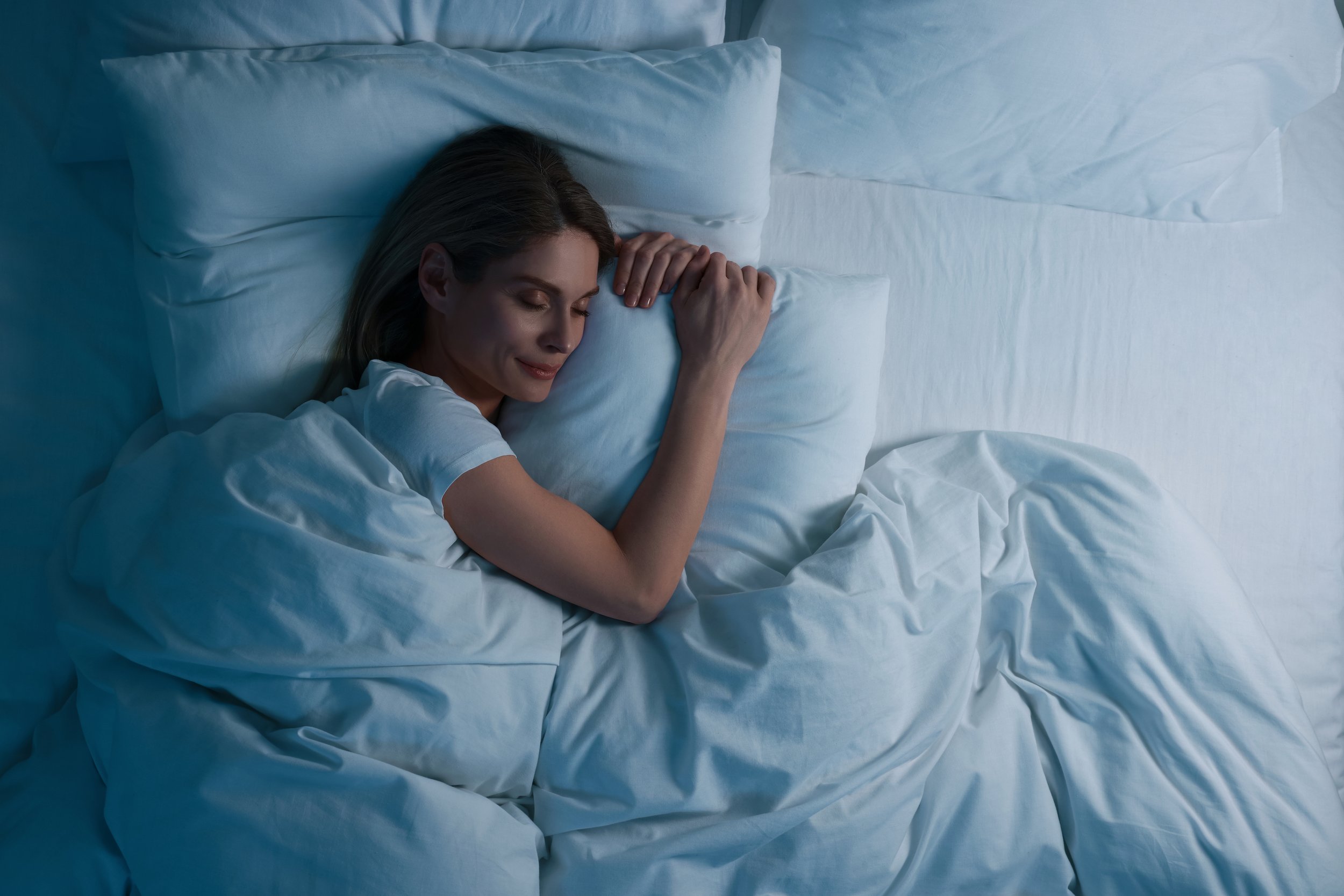
Sleep
Sleep is essential for memory, emotional well-being, cognitive function, and physical health. It boosts learning, regulates emotions, supports immune function, and even detoxifies the brain. Chronic sleep deprivation can lead to serious health issues, including heart disease and shortened life expectancy.

We have experience in diagnosing and treating a number of sleep conditions
-
Snoring is caused by the partial obstruction of the airway during sleep. While it may seem harmless, it can be a sign of obstructive sleep apnea (OSA). We offer diagnostic sleep studies to assess the severity of snoring and provide treatments such as lifestyle changes, continuous positive airway pressure (CPAP), or other airway devices to improve airflow and sleep quality.
-
Persistent daytime tiredness, despite adequate sleep, can be caused by sleep disorders like obstructive sleep apnea (OSA), narcolepsy, or poor sleep hygiene. We conduct thorough assessments, including sleep studies, to identify the cause and provide targeted treatments to help you feel more refreshed and alert throughout the day.
-
OSA is a sleep disorder where the airway becomes blocked during sleep, causing pauses in breathing and disrupting your rest. Symptoms include loud snoring and daytime fatigue. We offer sleep studies to diagnose OSA and treatments like CPAP therapy, oral appliances, or surgery to keep your airway open and improve sleep quality.
-
OHS occurs when excess body weight impairs your ability to breathe properly, particularly during sleep. This can lead to low oxygen levels and serious health complications. We provide treatments like weight management programs, CPAP or BiPAP therapy, and other breathing support to improve oxygenation and reduce risks.
-
Insomnia involves difficulty falling asleep, staying asleep, or waking up too early. It can be caused by stress, medical conditions, or sleep disorders. We offer cognitive behavioral therapy for insomnia (CBT-I), medication options, and sleep hygiene education to help improve your sleep and overall well-being.
-
Narcolepsy is a chronic sleep disorder that causes overwhelming daytime sleepiness and sudden episodes of falling asleep during the day, known as sleep attacks. It can also involve symptoms such as sleep paralysis, hallucinations, and, in some cases, sudden loss of muscle tone (cataplexy). We offer comprehensive sleep studies to diagnose narcolepsy and provide treatments like stimulant medications or other therapies to help you stay awake and alert during the day, allowing for a better quality of life.
-
Idiopathic hypersomnolence is a condition characterized by excessive daytime sleepiness despite getting adequate nighttime sleep, without an identifiable cause. Unlike narcolepsy, it does not typically involve sudden sleep attacks or cataplexy. Our team can perform sleep studies to confirm the diagnosis and prescribe medications or lifestyle strategies to help improve your wakefulness and manage excessive sleepiness.
-
RLS causes uncomfortable sensations in the legs and an urge to move them, particularly at night, while periodic limb movements involve involuntary jerking during sleep. We provide a range of treatments, including medications and lifestyle changes, to help reduce symptoms and improve sleep quality.
-
CSA is a disorder where the brain fails to send proper signals to the muscles that control breathing, often leading to disrupted sleep and oxygen levels. Cheyne-Stokes respiration involves cycles of deep and shallow breathing. We provide advanced diagnostics and treatments like adaptive servo-ventilation (ASV) or other forms of ventilation therapy to regulate breathing and improve sleep quality.
-
These parasomnias occur when individuals engage in activities like walking or talking while still asleep. They can be triggered by sleep deprivation, stress, or other conditions. We offer evaluations to determine any underlying causes and recommend strategies to ensure safety and minimize occurrences.
-
Bruxism, or teeth grinding, occurs during sleep and can lead to jaw pain, headaches, and dental damage. We offer treatments such as mouthguards, stress management techniques, and sleep evaluations to protect your teeth and improve overall sleep quality.
-
Hypoventilation occurs when you breathe too shallowly, leading to low oxygen levels during sleep. It can be related to conditions like OHS or other respiratory disorders. We offer diagnostic testing and treatments such as BiPAP therapy to improve your breathing and ensure adequate oxygenation during sleep.
Sleep Studies
If you're experiencing excessive daytime sleepiness or signs of sleep-disordered breathing, such as snoring, gasping for air, or disrupted sleep, a bulk-billed home sleep study (Level 2) could be the solution you need. This comprehensive test, allows you to undergo a detailed assessment of your sleep in the comfort of your own home.
Using advanced monitoring equipment, the study collects key data on your breathing patterns, oxygen levels, sleep stages and efficiency, heart rate, and body movements throughout the night. It’s an easy, convenient, and accurate way to investigate whether conditions like sleep apnea or other sleep disorders are affecting your quality of life.
Take control of your sleep health today and speak to your GP or one of our Sleep specialists to see if you qualify.
Schedule your bulk-billed home sleep study today!
